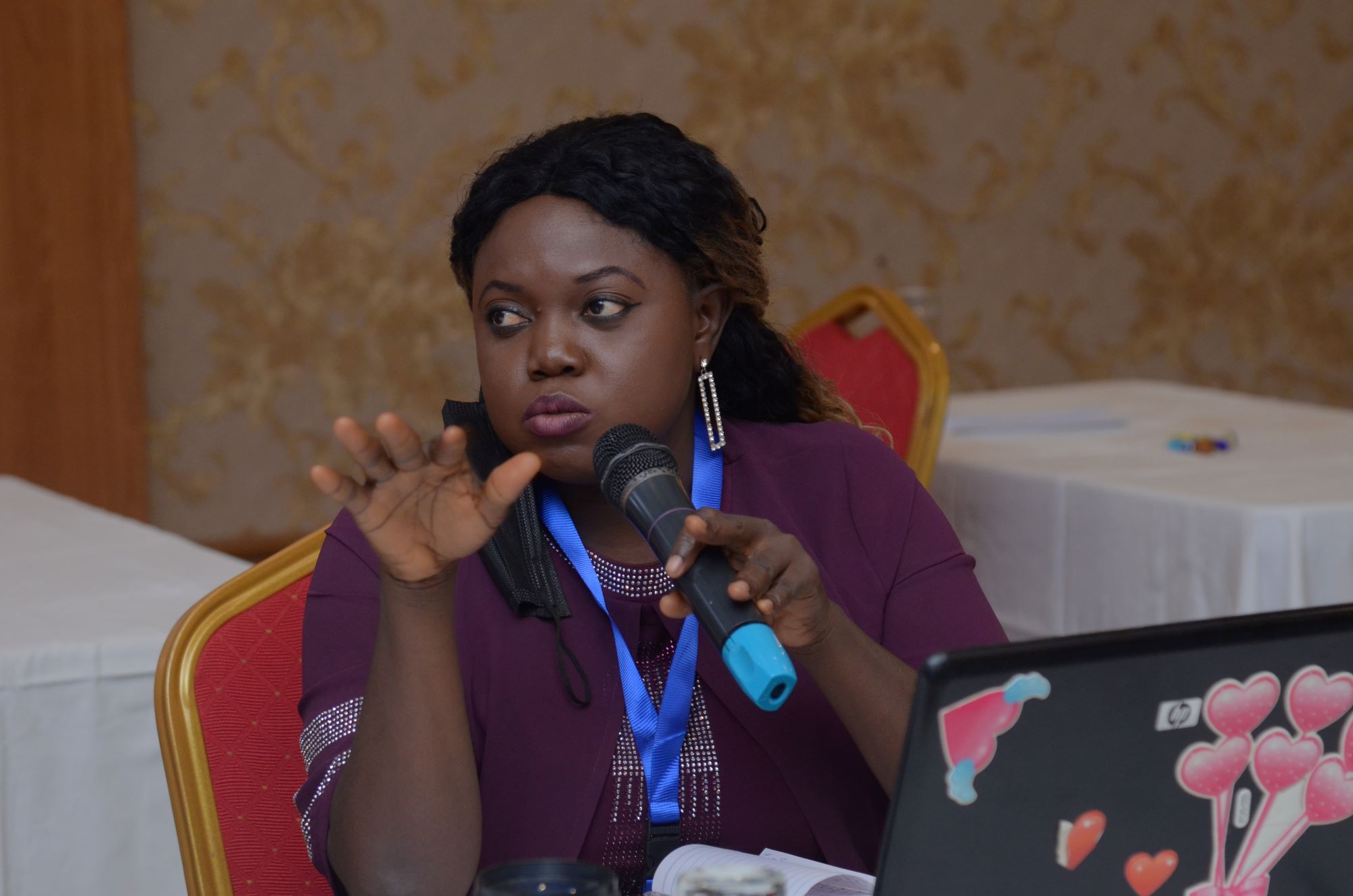Groundbreaking Workshop on AI and Technology-Facilitated Gender-Based Violence at AWiM24
Trending
Sunday May 25, 2025
Trending

From Minna, a not-so-famous city in Niger State, Nigeria, the story of a young female journalist with a burning desire to make an impact in the world through her little means began and has since blossomed into full bloom.
Justina Ashishana began her journalism career as an intern at The Nation newspaper in 2011 upon completion of her studies at Nasarawa State Polytechnic, a state-owned tertiary institution in Nigeria’s North Central region. She later joined New Nigerian Newspaper and Newswatch before returning to The Nation in 2015 where she is now the Niger State correspondent.
Aside from her regular job as a state correspondent for the foremost newspaper in Nigeria which keeps her busy all year round, Justina has continued to acknowledge the invaluable place of mentorship and fellowship programmes in the career life of a typical African woman in the media industry.
She attends conferences, trainings, and workshops and participates in fellowships then shares what she learnt with budding journalists and media students through step-down trainings and mentorship programmes. Justina has proven to be a great asset toward the capacity development of female journalists in Nigeria and most especially, Niger State where she resides.
In 2017, she attended the 10th Global Investigative Journalism Conference, in South Africa organized by the Global Investigative Journalism Network. In 2018, she attended the ICFJ Road Safety Conference in Thailand. In 2020, she also received a fellowship to attend the Global Ministerial Conference on Road Safety in Sweden.
In 2021, she was a Fellow at the African Women Journalism Project (AWJP), an organization founded by ICFJ Knight Fellow Catherine Gicheru as well as received training on misinformation through the Institute for War & Peace Reporting’s Africa Resilience Network.
She has also been a fellow of the Report Women Network, African Science Literacy network, ICFJ safety fellow, Dubawa fact-checking fellow and alumni of Data and Solutions Academy of the School of Media and Communications in the Pan-Atlantic University, Lagos.
One thing that makes Justina stand out after these workshops, fellowships and conferences is the fact that she takes it upon herself to share her acquired knowledge with fellow journalists who may not have had an opportunity to participate in such programmes.
Moved by her desire to increase the capacity of budding journalists in Niger State and Nigeria at large through mentorship, she founded the Media Mentors Network, an initiative that aims to build a network of mentors and mentees in Nigeria.
“Media Mentors Network began after I attended a series of fellowships and mentorship programmes and realized there’s a big gap in mentorship in Nigeria. I realized that a lot of young journalists come out from tertiary institutions without anyone to look up to.” Justina told AWiM News.
This is why Justina decided to form Media Mentors Network to bridge the gap between mentors and mentees by linking already established journalists with inexperienced ones.
Through the Network, she carries out trainings, seminars and consultancy work to address pressing issues in the media world.
“Mentorship plays a vital role in the capacity development of female journalists. This is because there are very few female journalists in the field and upcoming ones need to have someone to look up to that will guide them through developing their skills and confidence. Mentors help their mentees to take steps they might be reluctant to make, encourage them to aim higher beyond limitations as well as inspire them to take bold steps which ordinarily were thought to be for the male gender alone,” she added.
Having personally benefitted from a series of fellowships and mentorship programmes, Ashishana believes it is one of the major ways of achieving gender balance in the media industry.
“I think gender equality is very achievable if we put our axes together. Women who are already advanced in the profession should open up to teaching other young budding journalists. upcoming journalists on the other hand should be open to mentorship and not feel like they’re being used when someone is trying to mentor them. Being sent on assignments you feel is not what you should do can link you up with what you’re supposed to do,” she said.
This article is part of African Women in Media (AWiM) Graduate Trainee Programme in collaboration with FOJO Media Institute
We’re not gonna spam. We’ll try at least.

Copyright 2020. African Women In Media
Copyright 2020. African Women In Media
Recent Comments